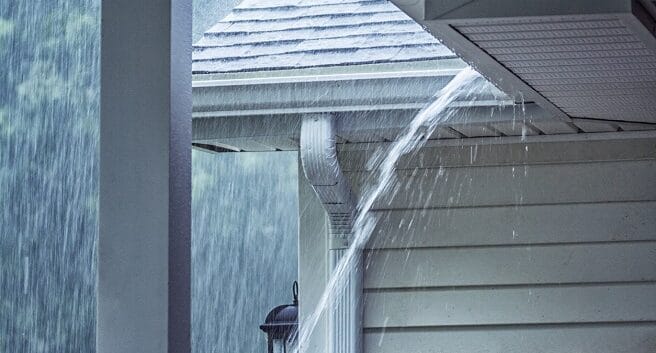Waterproofing your Atlanta home is an important part of homeownership. Typically speaking Atlanta, well Georgia as a whole, is in a constant drought. However, we all know the proverb “April showers bring May flowers,” and, if this past week and upcoming weekend are a preview of April, then I think it’s safe to say we are in store for a wet month (of course we will inevitably still be in a drought regardless of how much rainfall we get). In preparing for April, you will want to make sure you are doing everything you need to prevent any indoor flooding or pooling, so here are a few tips to keep the interior of your home dry:
- Perform regular maintenance on your roof and check it for any loose shingles or weak spots. Obviously, your roof will collect the most amount of rainfall during a storm. If you have any part of your roof that is weakening, the weight of the rain could cause it to collapse. Not only is this really annoying, it could cause a lot of water damage inside your house as well as be pricey to repair as well.
- Check your gutters, downspouts and drainage. As said in point #1, your roof collects a large amount of rainwater, then passes it down to the edge of the roof where you gutter will disposes of it through the downspouts. If the downspouts deposit the rainwater next to your foundation, you will have some major problems. To be effective, gutters need to be cleaned and downspouts need to deposit water at least five feet away from your foundation.
- Repair cracks in concrete walls. This point is mainly for basements, unless your house happens to have concrete walls. Regardless, a crack, or really any defect, could be a source of water. Repairing them is a rather simple process, just get a sealant or a construction-grade epoxy to penetrate the crack from the inside out. You could also call a crack repair technician.
- Watch for shrubs and other plants that may be too close to your foundation. Vegetation with rotted roots creates a clear path for surface water to flow directly to your foundation. To prevent this problem, plantings should be on a slight slope to direct water away from your foundation and at least one foot from the foundation.
- Make sure all doors and windows are properly sealed. They even have non-toxic sealant these days if you wanted to make sure you’re using green home improvement products.
I hope you enjoy the rainy days ahead and that these tips will help keep you dry.
And in the case that these tips are too late and you need help with basement waterproofing in Atlanta, reach out to 58 foundations!
